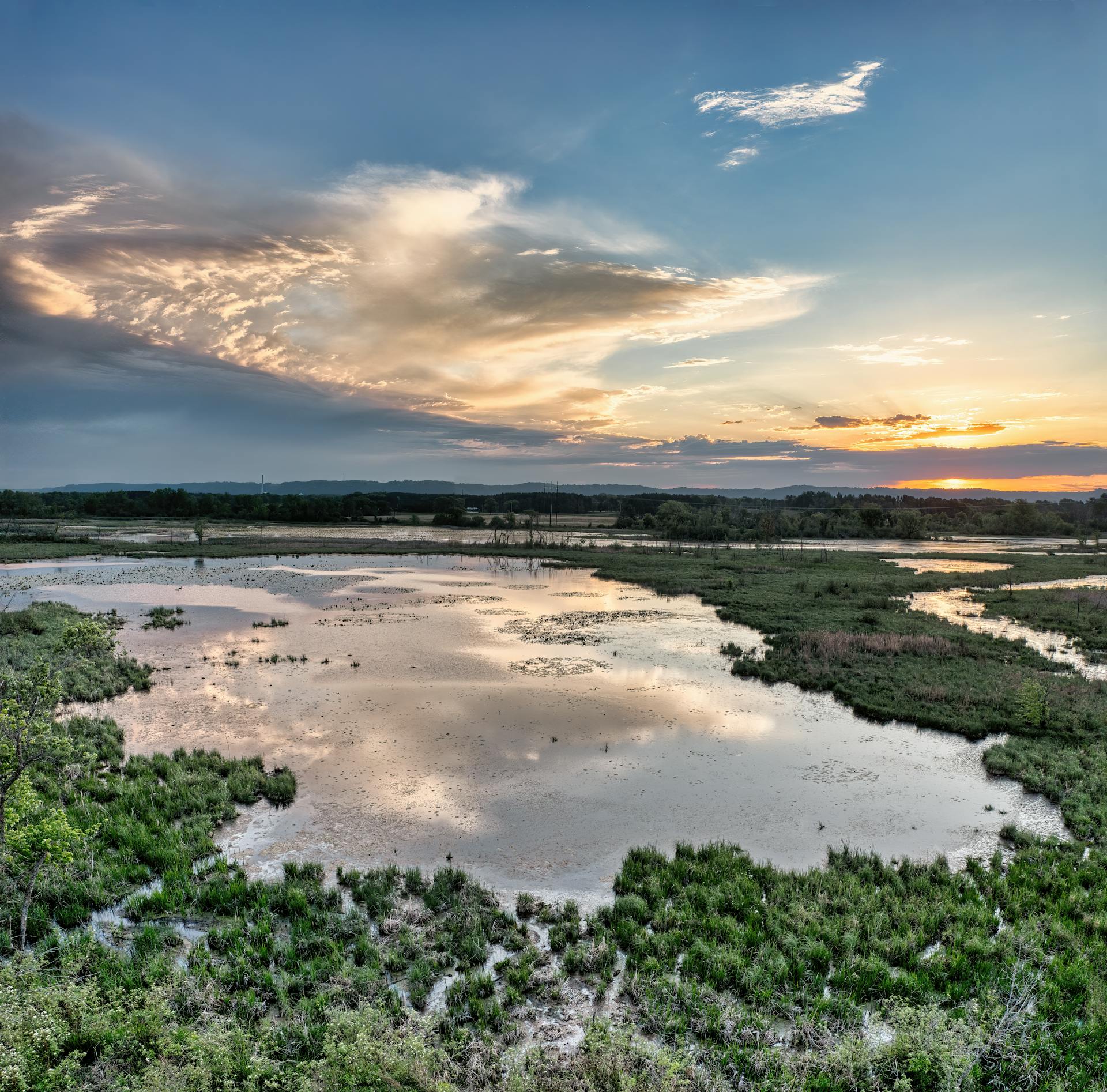By Alex Simalabwi, GWPSA-Africa Executive Secretary & CEO: Continental Africa Water Investment Programme
The average global surface temperature for January 2024 was the highest recorded for that month since global records began in 1850. 2023 was confirmed as the warmest calendar year in global temperature data records. The trend of rising global temperatures signals a distressing trajectory if immediate action is not taken.
Nowhere is the impact of climate change more acutely felt than in Africa. In the past year, the continent experienced over 20 flood disasters, the worst of which killed over 11 thousand people in Derna, Libya. We have tropical cyclones, which are increasing in frequency, and droughts. The worst drought in 40 years is impacting almost 30 million people in the Horn of Africa.
In Africa, we live climate change through water catastrophes, but sound water management and investment can buffer the continent from the worst of the climate crisis. The imperative to invest in water infrastructure, particularly in Africa, demands immediate attention. A climate-resilient water sector is the bedrock for economic growth, a continent free from hunger which currently affects a fifth of its 1.5 billion population, and fewer water-borne diseases. Over 300 million Africans do not have access to clean drinking water and over 700 million live without access to good sanitation.
Recognizing this urgency, the African Union’s High-Level Panel on Water Investments in Africa, through the Continental Africa Water Investment Programme (AIP), is mobilizing an additional $30 billion annually to meet Sustainable Development Goal 6. Only $10-$19 billion/year is invested in water security and sanitation currently. The High-level Panel have called on African leaders, heads of development organisations, and other partners to double current water and sanitation investments by 2030.
The HLP Panel’s landmark report, Africa’s Rising Investment Tide, launched at the United Nations 2023 Water Conference identified nine financing streams from which to secure an additional US$30 billion to achieve water security and sustainable sanitation in Africa by 2030 on the continent. Domestic resources were found to be the most significant – with the potential to raise an additional $17.5 billion annually.
The Panel’s efforts are bearing fruits. The Green Climate Fund (GCF) confirmed a $6 million grant – AU-AIP GCF Multicountry Readiness Project – to support 15 African Union member states develop climate resilient national water investment programmes which will spell out the investment priorities and the resources required to achieve them
The 15 countries to receive support are; Central African Republic, Chad, Eswatini, Guinea, Malawi, Morocco, Mozambique, Republic of Congo, Sierra Leone, Somalia, Tunisia and Burundi. The
AU-AIP Multi-Country GCF Readiness support will be implemented by the African Union Commission in collaboration with the GWP Africa, which hosts the AIP Secretariat.
This GCF funding will support African countries build country capacity, enhance access to GCF resources and other climate finance, and create an environment where financiers can more readily help countries turn climate ambitions into climate projects.
In the case of Burundi, for instance, despite the formulation and adoption of several climate change strategies and action plans, the water sector grapples with challenges stemming from a fragmented regulatory framework, inconsistency, and incomplete regulations. Actors within the water sector face limitations in their capacity for climate finance, and insufficient funding hampers crucial adaptation and mitigation initiatives. The implementation of the AU-AIP Multi-Country GCF Readiness support in Burundi will play a crucial role in addressing these issues, enhancing climate finance programming capacity, refining strategic frameworks for climate finance in the water sector, and bolstering knowledge management.
Furthermore, the support will ensure the integration of gender and social inclusion considerations into water sector programmes. Take Morocco as an example, where the adverse impacts of drought and resource scarcity disproportionately affect women, especially in rural areas. Despite constituting 44% of the agricultural workforce in Morocco, women face unequal access to land rights, natural resources, financing, water and energy infrastructure, technology, and extension services. Addressing gender disparities in access to resources could potentially boost agricultural yields in Africa by at least 20%. Consequently, incorporation of the gender dimension into adaptation projects becomes imperative. The AU-AIP Multi-Country GCF Readiness support will empower water stakeholders in Morocco, building their capacity to formulate gender policies in investment projects to be presented to the GCF.
It is commendable that the GCF and other partners including the World Bank, European Union (EU), and over 40 AIP partners are already supporting the cause for climate-resilient water investments in Africa. Other multilateral climate funds and investors need to increase efforts, and resources and strengthen partnerships toward accelerating finance for climate resilience water investments for Africa.
The AIP Investment Action Plan, which supports the implementation of the High-Level Panel’s landmark report, Africa’s Rising Investment Tide, and the AIP, highlights the specific actions needed to mobilise financing for African water security and sustainable sanitation. It shows that the gap is huge, but collaboration and partnership as exemplified by the GCF, can help shield Africa from the ravages of climate change.
In the face of escalating global temperatures and the imminent threats posed by climate change, the time for decisive action is now. Let us stand united in our commitment to securing Africa’s future by rallying behind accelerated water investments. This is not just a call to conscience; it’s a call to safeguard lives, economies, and the very essence of our shared humanity. Together, we can bridge the funding gap, fortify partnerships, and ensure that resilient water infrastructure underpins a thriving, equitable Africa. The future depends on our collective resolve – let’s act boldly and decisively for the generations to come.

